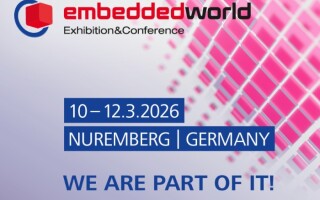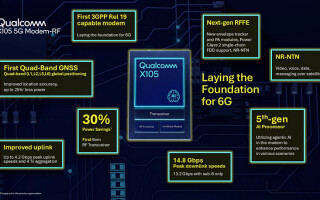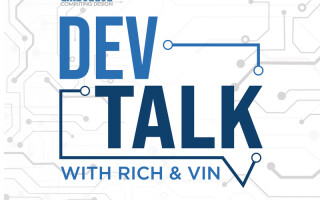CSA Announces Matter 1.2 with Many Improvements
October 25, 2023
Story

The CSA has announced the second update to Matter, version 1.2. It is now available for device makers and platforms to use, and this new version is reportedly loaded with nine new device types, revisions, and additions to existing categories, several core improvements to the specification and SDK, and new certification and testing tools.
Matter certification has continually gained ground since its release and has played into major embedded projects in that time. The Connectivity Standards Alliance (CSA), which supports Matter, says that just since the release of Matter 1.0 in April, there have been more than 24,600 downloads of the spec, 1,214 certifications, nearly 24 percent growth in the number of companies who have joined the Matter Working Group, and they’ve established a new Alliance Interoperability Test Facility. According to the release, the Matter 1.2 certification program is now open to members.
Nine New Device Types
The CSA has added support for nine new device types in Matter 1.2, including:
- Refrigerators: Beyond basic temperature control and monitoring, this device type is also applicable to other related devices like deep freezers and even wine and kimchi fridges.
- Room Air Conditioners: While HVAC and thermostats were already part of Matter 1.0, standalone Room Air Conditioners with temperature and fan mode control are now supported.
- Dishwashers: Basic functionality is included, like remote start and progress notifications. Dishwasher alarms are also supported, covering operational errors such as water supply and drain, temperature, and door lock errors.
- Washing Machines: Progress notifications, such as cycle completion, can be sent via Matter. Dryers are coming in a later release.
- Robotic Vacuums: Beyond the basic features like remote start and progress notifications, there is support for key features like cleaning modes (dry vacuum vs wet mopping) and additional status details (brush status, error reporting, charging status).
- Smoke & Carbon Monoxide Alarms: These alarms will support notifications and audio and visual alarm signaling. There is also now support for alerts about battery status and end-of-life notifications. These alarms also support self-testing. Carbon monoxide alarms support concentration sensing, as an additional data point.
- Air Quality Sensors: Supported sensors can capture and report on: PM1, PM 2.5, PM 10, CO2, NO2, VOC, CO, Ozone, Radon, and Formaldehyde. Furthermore, the addition of the Air Quality Cluster enables Matter devices to provide AQI information based on the device’s location.
- Air Purifiers: Purifiers utilize the Air Quality Sensor device type to provide sensing information and include functionality from other device types like Fans (required) and Thermostats (optional). Air purifiers also include consumable resource monitoring, enabling notifications on filter status (both HEPA and activated carbon filters are supported in 1.2).
- Fans: Matter 1.2 includes support for fans as a separate, certifiable device type. Fans now support movements like rock/oscillation and new modes like natural wind and sleep wind. Additional enhancements include the ability to change the airflow direction (forward and reverse) and step commands to change the speed of airflow.
Other New Features & Improvements
The update to Matter, CSA says, is not a static change with newly supported device types. The specification, along with the SDK, testing tools, and certification program, will evolve, the release said, thanks to input from smart home engineers and product experts in the industry.
Core improvements to Matter 1.2
- Latch & Bolt Door Locks: Enhancements for European markets that capture the common configuration of a combined latch and bolt lock unit.
- Device Appearance: Added description of device appearance, so that devices can describe their color and finish.
- Device & Endpoint Composition: Devices can now be hierarchically composed from complex endpoints allowing for accurate modeling of appliances, multi-unit switches, and multi-light fixtures.
- Semantic Tags: Provide an interoperable way to describe the location and semantic functions of generic Matter clusters and endpoints to enable consistent rendering and application across the different clients.
- Generic Descriptions of Device Operational States: Expressing the different operational modes of a device in a generic way will make it easier to generate new device types in future revisions of Matter and ensure their basic support across various clients.
- New Platform Support in SDK: Matter 1.2 SDK is now available for new platforms providing more ways for developers to build new products for Matter.
- Enhancements to the Matter Test Harness: The Test Harness is a critical piece for ensuring the specification and its features are being implemented correctly. The Test Harness is now available via open source, making it easier for Matter developers to contribute to the tools (to make them better), and to ensure they are working with the latest version (with all features and bug fixes.
Major embedded players and tech leaders are already sounding support for the Matter 1.2 update. In a recent announcement, Silicon Labs made public its support for the update. Silicon Labs has been a supporter of the protocol since its initial release. The company said it will provide the new and revised clusters required for all the Matter-supported device types. The announcement also outlines the company’s aim to offer simplified experiences for users, including descriptive visual elements for device verification.
Matter is proving to be a solid standardized protocol, and it’s no surprise that it’s growing in use across verticals. It seems very likely that that trend will continue, and it will be exciting to see how the CSA keeps evolving the tools.





